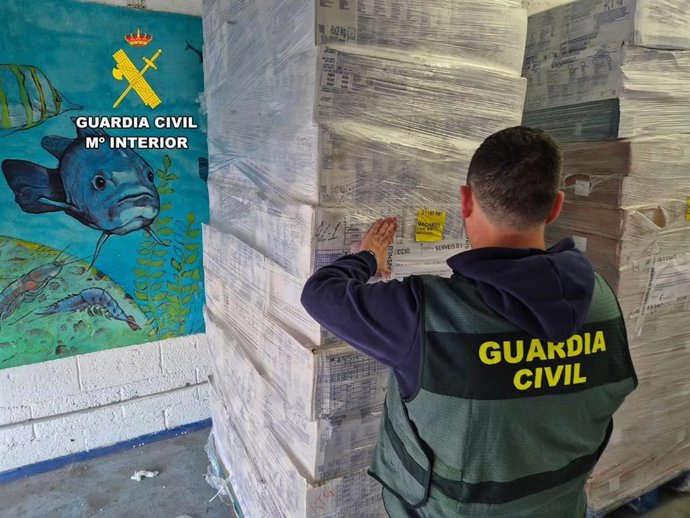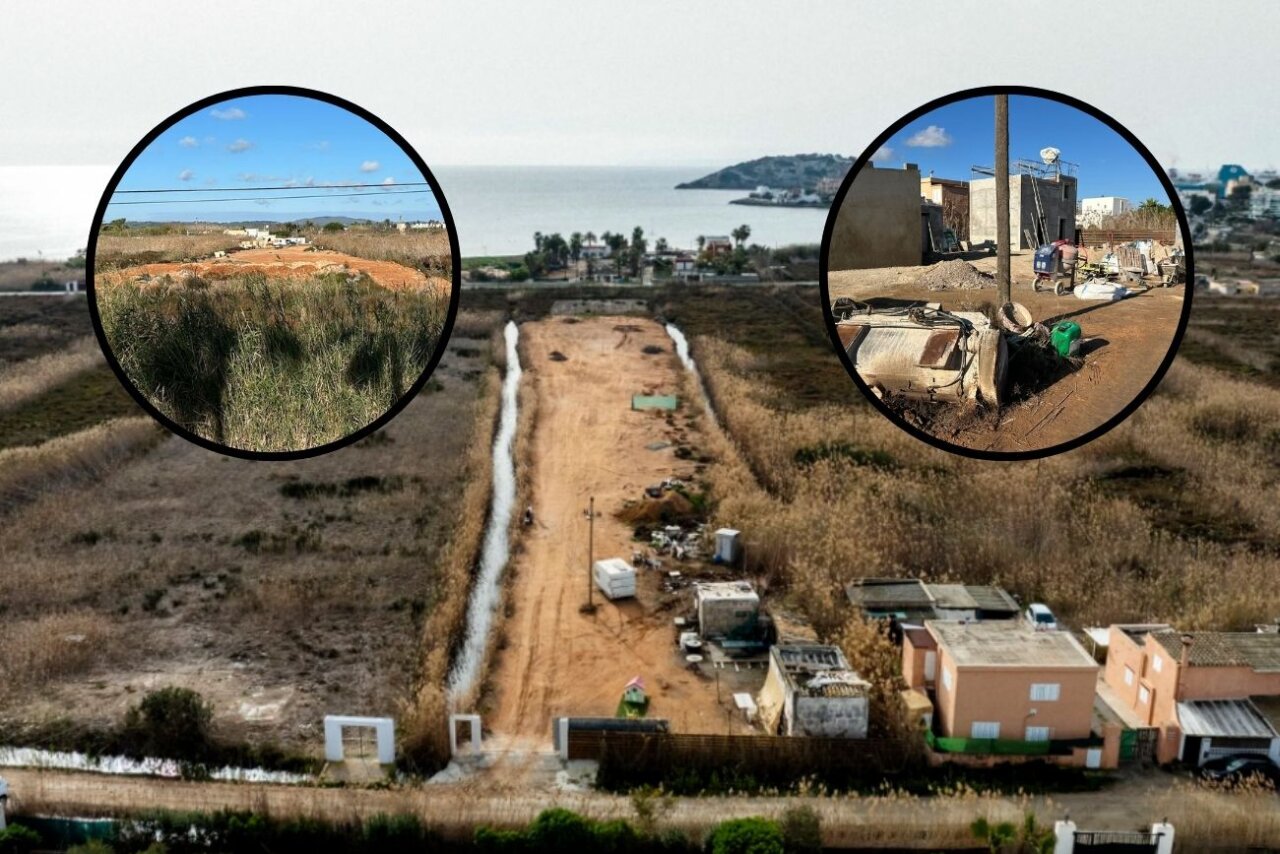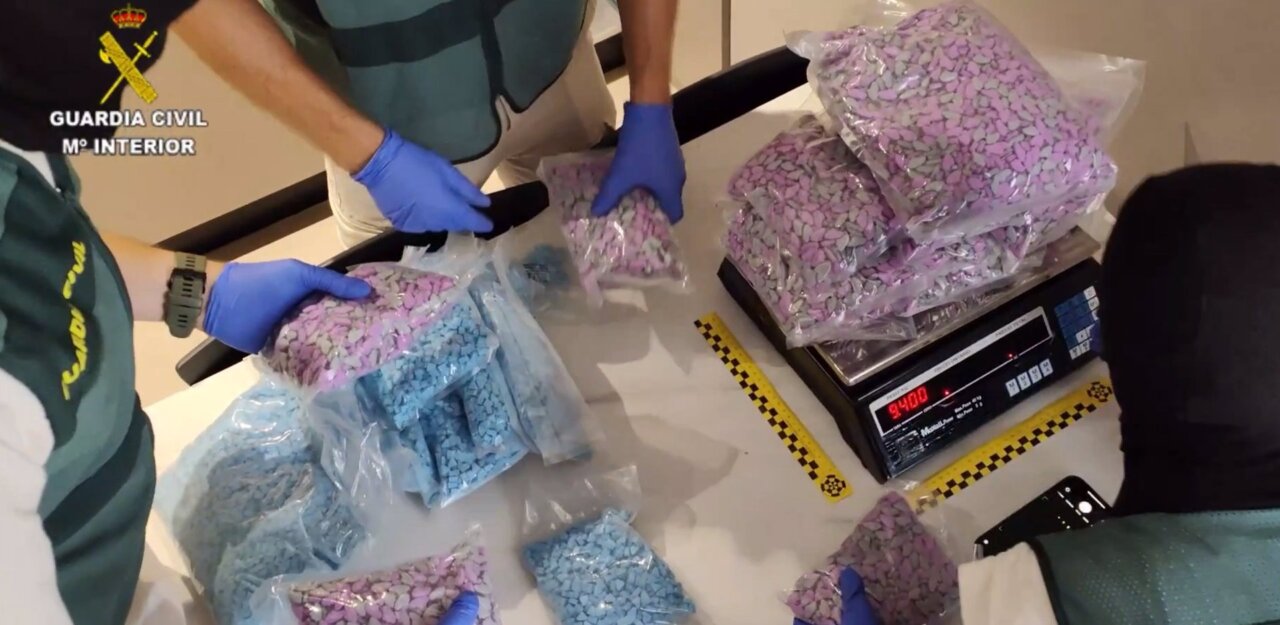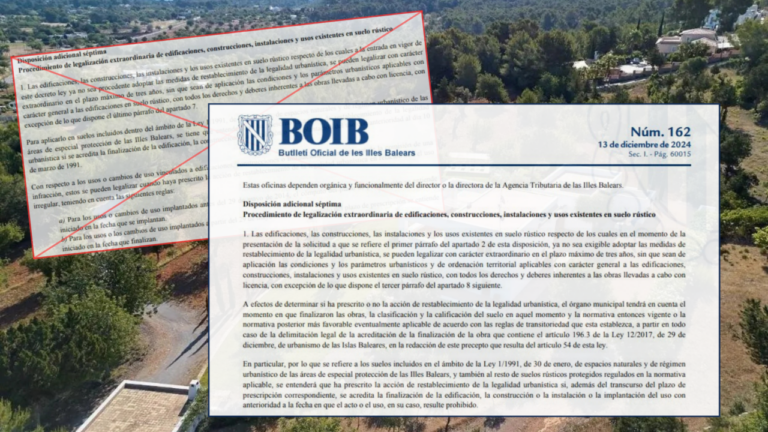The Civil Guard, through the Nature Protection Service (SEPRONA), together with technicians from the General Directorate of Public Health of the Balearic Government, has uncovered one of the biggest food frauds recently detected in the Balearic Islands. During an inspection carried out last April in a fish and seafood distributor located in Palma de Mallorca, the agents located 20 tons of seafood and fish unfit for human consumption, merchandise that was allegedly destined for restaurants and large supermarkets.
As confirmed by the authorities, the products had expired consumption dates from 2019, which was already a serious infraction. However, the most worrying finding came when the inspectors verified that the cold chain had been broken, and that the food had been thawed and refrozen, a practice expressly prohibited due to the serious health risk involved.
The report details thatmost of the products were out of date, as they had use-by dates of 2019.. In addition, it was found that some of the genus had been relabeling to simulate recent dates, which increases the seriousness of the fraud and opens the door to possible criminal liability.
A direct risk to public health
Breaking the cold chain in seafood products is considered one of the most dangerous irregularities in the food industry. The authorities emphasize that this type of practice facilitates the proliferation of bacteria such as Salmonella, as well as parasites such as Anisakis, which can cause particularly serious intoxications.
The operation prevented the 20 tons seized from reaching the market, a circumstance that could have led to a large number of people being affected, especially since it was a distributor that supplied catering businesses and high-volume stores.
The authorities point out that this type of food fraud affects not only health, but also consumer confidence and competition between companies that do strictly comply with the regulations.
Penalties of up to 90,000 euros and open criminal investigation
After the withdrawal and total immobilization of the goods, Public Health opened a sanctioning file against the company responsible, attributing to it two very serious infringements in matters of public health and consumer protection. The fine amounts to a total of 90,000 euros.
SEPRONA has confirmed that the investigation is still open to determine whether, in addition to administrative infractions, there could be criminal liabilities derived from the fraudulent manipulation of the labeling, the non-compliance with food safety protocols and the possible risk caused to consumers.
Reinforcement of controls before the arrival of the holiday season
Official sources of the Government have reported that this type of inspections will be intensified in the coming weeks. The objective is to avoid that, with the increased consumption of fish and seafood at Christmas, similar cases may be repeated, putting the health of the population at risk.
The responsible agencies stress the importance of citizens purchasing products only from authorized establishments and always checking the labeling and use-by date before buying perishable foods.
Rigorous control, both by the authorities and by consumers themselves, is key to detecting any manipulation or irregularity that could compromise food safety.
Fraud reopens debate on food chain surveillance
The intervention of these 20 tons of spoiled fish and seafood brings back to the table the debate about the strengthening of inspections, especially in industries dedicated to food of high sanitary risk.
This case is in addition to other recent episodes in the food sector that have warned of illicit practices motivated by economic savings, but which entail enormous danger for the population.
The actions of SEPRONA and Public Health have been decisive in preventing expired, poorly preserved and relabeled products from ending up on the tables of thousands of consumers. Now, the future of the investigation will determine the extent of the responsibilities and could result in even greater consequences for the distributing company.










